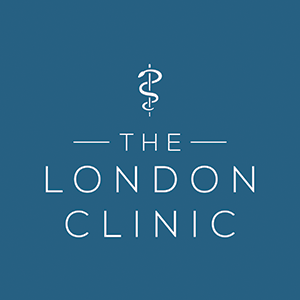Did you know your liver performs more than 400 functions that keep you healthy? A healthy liver performs essential roles, including making proteins that help in blood plasma production, regulating blood sugar and amino acids, and filtering toxins in the blood.
Diseases such as liver cancer, bile duct cancer, hepatitis B & C or liver cirrhosis will cause your liver to fail, and you might need a new liver.
Key Takeaways
- Your age and health and of the donor contribute to the success and survival rate of the liver transplant.
- Biliary atresia and cirrhosis are the most common liver diseases in children and in adults, respectively.
- A liver transplant provides the best treatment option for patients experiencing acute liver failure.
What is a Liver Transplant?
A liver transplant is a surgical procedure that removes a diseased or injured liver and replaces it with a healthy liver from a donor.

Types of Liver Transplants
Here are three main ways a liver transplant can be performed:
- Deceased organ donation: involves liver transplantation from a recently deceased donor.
- Living donor liver transplant: a liver section is removed from a living donor.
- Split donation: a recently deceased person's liver is split into two pieces, each transplanted to a different recipient.
What Conditions Can a Liver Transplant Treat?
The most common liver disease in children is biliary atresia, while cirrhosis in adults.
Diseases treated with liver transplants include but are not limited to:
- Acute and chronic hepatitis
- Liver cancer and bile duct cancer
- Metabolic diseases
- Alcoholic liver disease
- Alpha-1-antitrypsin deficiency
- Amyloidosis
- Autoimmune hepatitis
- Biliary atresia
- Budd-chiari syndrome
- Liver cirrhosis
Are you suffering from acute liver failure? Find and book a liver specialist and get a comprehensive consultation to determine the most appropriate treatment.
What Are the Requirements for Liver Transplants?
Are you in need of a liver transplant? You need to meet the minimum requirements to qualify for a liver transplant are:
- You have evidence of clinical signs of liver failure or primary liver cancer.
- You are in good health to undergo surgery and recuperate.
- You are not at risk of future alcohol or drug abuse.
There is a huge demand for liver transplants globally, and a small number of patients in critical condition with acute liver failure are given priority.
It is essential to know that the donor’s livers are matched with transplant recipients by sorting by:
- Blood type.
- Body size.
- Geography.
To be a match for a donor’s liver, you usually must be a match in all three of these categories.
What is the Cost of a Liver Transplant?
According to Lyfboat, the cost of liver transplants in India, Germany, Singapore, and the USA is $26500, $300000, $400000 and $600000, respectively.
| Country | Cost in USD |
| India | $26,500 |
| Germany | $300,000 |
| Singapore | $400,000 |
| USA | $600,000 |
The cost of a liver transplant varies depending on a person’s location, medical charges, healthcare facility, insurance coverage, and other factors such as the type of surgery and post-operative recovery period.
Are you in need of a liver transplant? Get a FREE personalized and customised cost estimate for liver transplants and visit our international partner hospitals.
Where Can I Go for a Liver Transplant?
We have partnered with the leading world-class hospitals that offer high-quality liver transplantation with high success and survival rates.
Some world-class international hospitals include Acibadem International Hospital, in Turkey, As-Salaam International Hospital, in Egpyt and Bumrungrad International Hospital, in Thailand.
Here are international hospitals providing word-class liver transplantation:
1. Acibadem International Hospital
The international hospital prides itself in providing a 1-year survival rate of 92% and 5-year survival rate of 89% in liver transplants.
Acibadem Liver Transplant Centre has surgeons with expertise in paediatric liver transplants and combined kidney-liver transplants.
The Liver Transplant Centre at Acibadem has performed over 1000 liver transplants with success rates above the world’s average.

Do you need to visit our partner hospital in Turkey? Book and get comprehensive treatment options from specialists at Acibadem International Hospital.
2. Asuta Medical Centre
The medical centre is the leading group of private clinics in Israel. The facility experienced Israeli surgeons have top notch expertise in performing basic and complex procedures using leading technologies.
The hospital oversees more than 500 different surgical, and the surgeries are performed in compliance with the highest standards, according to the most advanced medical protocols.
3. Bumrungrad International Hospital
The international hospital in Bangkok, Thailand, provides comprehensive diagnosis, treatment, and follow-up for patients with liver disorders.
The international hospital provides a one-year survival rate of 97%, a five-year survival rate of 82 % and the ten-year survival rate of 67%.

Get comprehensive and advanced treatment and care at Bumrungrad International Hospital.
4. As-Salam International Hospital
The hospital has experienced consultants and specialists with expertise in diagnosing patients with liver conditions.
The Liver Transplantation Unit at As-Salam International Hospital ensures the highest quality standards for patients are implemented for high survival and success rates.

Are you seeking medical treatment abroad? Experience world-class care at As-Salam International Hospital, the leading international hospital in Egypt.
What To Expect After the Procedure
After your liver transplant, you will:
- Be in the intensive care unit for a few days
- Spend two weeks in the hospital
- Undergo frequent check-ups as you continue recovering at home
- Continue taking medicines for the rest of your life
During your follow-up appointments, you will:
- Have blood work completed
- Meet with your transplant coordinator
- Have a consultation with a transplant surgeon or transplant hepatologist
- Complete additional testing as indicated
The follow-up allows the liver transplant team to diagnose and treat any problems immediately to ensure that the liver is working properly and that your body responds well to the new medicines.
Factors Affecting Liver Transplant Survival Rates
The success and survival rates of liver transplants depend on the following factors:
- The age and health, and condition of both the donor and recipient
- The health of the donor’s liver
- Rejection of the donor’s liver
- Post-surgical complications
- Side effects of the medications prescribed
According to Mayo Clinic, 75% of people who undergo liver transplants live for at least five years. The chances of a successful liver transplant and long-term survival depend on personal situation.
Are you in need of medical attention? Or are you suffering from an illness? We have made it easier for you to find the right medical specialists, services, and treatment, in Africa and internationally.
Book your doctor’s appointment and get coa mprehensive consultation on the condition affecting your health.










